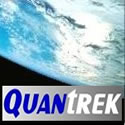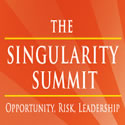WORLD FUTURES INSTITUTE
–From WIKINOMICS through AUTOGNOMICS to WIKIGNOMICS—
MINDING HUMAN CULTURE AS A WHOLE
At the core of every cultural tradition is a story which attempts to integrate ideas about ultimate existence (cosmology) with ideas about which experiences ultimately matter (morality). When these stories appear intellectually implausible and/or morally irrelevant, within or between cultures, they render culture generally vulnerable to crisis. There is now a critical need on a global scale for constructing a new and unique Story, a global ‘mythology’, of Human Culture as Whole(Ness). The central challenge of the twenty-first century will be to integrate an evolutionary cosmology with an ecocentric morality recognizing the universal tension between Truth by Adapting Presumed Beliefs to Experience versus Truth by Adapting Experience to Presumed Beliefs. Such a story seems to be forming around the Epic of CoCreative CosmiChaotic (R)Evolution emerging from the necessarily irreducible interrelation of the Analytical (Inquiry and Inference) and Intuitive modes of consciousness as MIND.
The drive to Inquire, being the natural state of the Individual Human Mind, will generally sustain the individual unless blocked by other’s acts. This is not to dismiss the constant presence of unforeseen acts of “nature” which can circumstantially render a person ineffective if not dead. But, in order to learn one must continue as an individual to desire to learn. Yet, the history of the evolution of human forms of collective organization, from group to community to society and state, evidences a tendency of the collective form, at whatever level, to emerge as a system with centralized control of its parts, i.e. the people as individuals. This is true throughout the range of forms of the controller from individual or small group dictatorships through specialist managers to the rule of the majority. The result is that the process of inquiry favors the collective need at the expense of the individual’s self-determination with a resulting diminution of self-motivation. Recognizing also, however, that organisms of most, if not all forms, have increased chances of survival through cooperation in collectives, Humanity with its current philosophy of centralized control in collective organization faces the zero-sum dilemma of a choice between individual autonomy vs. collective integrity. The resolution of the dilemma requires we look beyond the notion of a collective system to that of a System-As-Whole.
The last half of the 20th century evidenced a growing unrest with our present conceptualizations of experience, in particular, in socio-economic-political organization. This trend is now rapidly approaching a crisis point which will necessitate a major shift in world view. The emerging paradigm is one in which the universe in all of its parts is viewed as a super hologram. The unifying feature is the concept of The Whole as a relational form which presences in each and every part— i.e. where thinking as a part and acting as the whole IS thinking as the whole and acting as a part.
Not surprisingly, one of the most significant remaining unmined potentials is in the rich base of human, social, relational and intellectual capital to be found in small (including from one up to a small handful of entrepreneurial persons) to medium size enterprises. A strong and independent small enterprise system disperses economic power, localizes economic decision-making, and protects the potential for voluntary cooperative organization.
THE NEED in order to effectively engage this resource is for new processes and technologies for improving personal and organizational effectiveness in “Knowledge Development” implemented through an organizational and management architecture respecting autonomy throughout its hierarchical and heterarchical levels by effecting co-intelligence in a cognitive network for Rational Collective Decision Making to support and extend Individual Innovation. THE SOLUTION is an Intelligized Wikinomics via a Cognitive Network of AutoGnomes, i.e. a CogWeb or WIKIGNOME.
IT IS TO LEAD THIS EFFORT THAT IS THE PURPOSE OF
THE WORLD FUTURES INSTITUTE
WIKINOMICS-
A NEW ART AND SCIENCE OF COLLABORATION
[This section is edited by condensation from Wikinomics: How Mass Collaboration Changes Everything, by Don Tapscott and Anthony D. Williams, Published by Portfolio, 2006]
Throughout history corporations have organized themselves according to strict hierarchical lines of authority. There was always someone or some company in control. While hierarchies are not vanishing, profound changes in the nature of technology, demographics, and the global economy are giving rise to powerful new models based on community, collaboration, and self-organization rather than on hierarchy and control.
Millions now use blogs, wikis, chat rooms, and personal broadcasting to add their voices to a vociferous stream of dialogue and debate called the “blogosphere.” Employees drive performance by collaborating with peers across organizational boundaries, creating what we call a “wiki workplace.” Customers become “prosumers” by cocreating goods and services rather than simply consuming the end product.
Smart companies are encouraging, rather than fighting, the heaving growth of massive online communities—many of which emerged from the fringes of the Web to attract tens of millions of participants overnight such as MySpace, InnoCentive, flickr, Second Life, YouTube, and the Human Genome Project. Indeed, as a growing number of firms see the benefits of mass collaboration, this new of way organizing will eventually displace the traditional corporate structures as the economy’s primary engine of wealth creation. Already this new economic model extends to virtually every part of the global economy.
The conclusion from all of this is striking and enormously positive. Billions of connected individuals can now actively participate in innovation, wealth creation, and social development in ways we once only dreamed of. And when these masses of people collaborate they collectively can advance the arts, culture, science, education, government, and the economy in surprising but ultimately profitable ways. Companies that engage with these exploding Web-enabled communities are already discovering the true dividends of collective capability and genius.
To succeed, it will not be sufficient to simply intensify existing management strategies. Leaders must think differently about how to compete and be profitable, and embrace a new art and science of collaboration we call Wikinomics. This is more than open source, social networking, so called crowd sourcing, smart mobs, crowd wisdom, or other ideas that touch upon the subject. Rather, we are talking about deep changes in the structure and modus operandi of the corporation and our economy, based on new competitive principles such as openness, peering, sharing, and acting globally.
AUTOGNOMICS-
A SEMIOTIC APPROACH TO SYNTHESIZING INTELLIGENCE/MIND
FOR ENABLING HUMAN INNOVATION
- In the process of material/energetic evolution, the origin of sign (=image) is posited to be a necessary and (possibly) sufficient condition for the evolutionary origin of life.
- The greatest innovation in the history of human life experience, i.e. language (a sign system), provided the foundation on which all future progress of human culture/society would be built.
- The communication of experience, this being the crux of societal systems, rests in-and-on language or, more generally signs (for Systems or Relations) which are acknowledged to be the essence of mind (recognizing the “carrier” role of the brain).
- The problem of understanding mind is assumed to be first (since understanding per se is a function of mind, it follows that the very process of understanding itself can be enhanced by first understanding mind, particularly in its synthetic extension, the AutoGnome(tm) among three of the great cosmic mysteries—the “origin”, nature and evolution of the Universe, the “origin”, nature and evolution of Life and the “origin”, nature and evolution of Mind.
- Not only is what we can think constrained by the languages (signs) we use, language use itself requires a different logic for inquiry vs. inference vs. intuition. This consideration is inherent to the applied multicorelational premise regarding synthetic mind.
- We are in the midst of sweeping global economic and social transformations (the blogosphere and wiki workplace) where creativity has replaced physical labor and large-scale bureaucracy as the key source of community and economic growth. We face an information-based, chaotically changing environment in which success depends on the superiority of continually accelerated Wikinomic Innovation.
- Synthetic (Virtual) Intelligence/Mind is also the essence of virtuality (an autonomous semiotic universe (the cyberverse) in which information (signification) is transferable (communicatable) only among virtual minds); thus Virtuality is Related to (Human) Reality through the Virtual Reality of the Web.
- It is rapidly becoming evident to key decision makers that this demand for accelerating wikinomic innovation is only possible through evolving Synthetic Intelligence (SI) which has the potential to impact every aspect of human life. The problem/dilemma for SI developers is that there is no standard, workable theory of mind.
- It is the provision of this latter (the standard) that is the intent of our current development of the AutoGnome as Synthetic Intelligence/Mind and it is believed that we are in a five year window (2008-2013) as the critical time during which the three or so industry leaders will emerge as forging the standard for this Virtual Universe populated by Synthetic Intelligences/Synthetic Minds.
WIKIGNOMICS(tm)
INTELLIGIZING WIKINOMICS VIA A COGNITIVE NETWORK OF AUTOGNOMES
Semiotic Relational Systems
A Semiotic Relational System is a system of relations exhaustively admitting all forms of interrelatedness among systems and/or relations and with certain systems or relations (called signs) taking the place of (i.e. imaging (signifying)) other systems or relations to a specific mind.
AutoGnome
The AutoGnome is a self-knowing general purpose software system of automated (autonomous) inquiry, inference and intuition exploiting a mechanized carrier system for relational semiosis as a virtual (synthetic) mind.
Intellisite
The Intellisite(tm) (an Intelligent WebSite) is a constructed software environment (a Website) with an embedded form of the AutoGnome known as a WebGnome(tm), an intelligent agent residing in this cyberspace environment which, with its continuous adaptive learning from mimicking the user’s behavior, will grow into a likeminded replica (MindClone(tm)) of a user-self acting in the Virtual Reality of the Internet with the synthetic mind capabilities of the AutoGnome.
CoGnome
The CoGnome(tm) is a selected WebGnome which, inter-connecting two or more Intellisites in a Network of Intellisites, provides a computerized collective intelligence, an automated co-intelligence, i.e. the Collective-AutoGnome (Auto(Co)Gnome) or simply the CoGnome.
CogWeb
The CogWeb(tm) is the Network of Intellisites implemening the CoGnome for Network Decision-Making by autonomously formed Intellisite-defined groups, organizations, communities and societies, i.e. a WIKIGNOME.







Wed, May 27, 2009
0 Comments